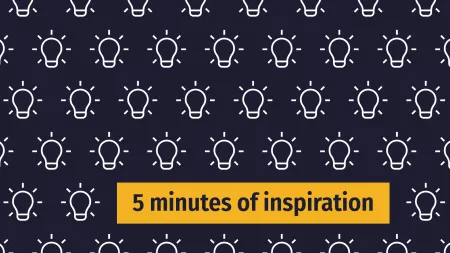“I came to understand that women have value and are equal with men because what men can [do], women can, too. For me, it is a very important help.” Lorna* lives in Santa Catalina, Philippines, and got some cash and some GBV training as part of the Together for Her project.
Here are some other things women who received cash told us about what they’re doing now.
“I also lost my job due to the pandemic, that was a solid 9 months too, but thankfully, I have a job again now. The cash assistance is a big deal for us. This is already for the milk and diapers for my youngest. Actually, we’re going straight there now.”
“I will use this cash for additional capital for our small canteen [café]. It will also be useful for school expenses because even though all learning is done online, there are still expenses for education.”
“Even just for prepaid cellular load, this payout serves as a great help already. Of course, for our daily expenses as well.” Why does paying for cell phone credit matter? Because as Nanay Guillerma says, “There are times when my youngest gets asked [by teachers] why there are times that he is unable to attend online classes. All he can say is ‘Ma’am, we don’t have a cellphone.’” Cellphone credit is one way people can connect to opportunities even during COVID-19 lockdowns.
Between September and December 2020, Together for Her reached 7,749 people (4,255 of them women) with $75,000 from Charlize Theron Outreach Africa Project and Entertainment Industry Foundation’s Together for Her. The CARE team partnered with ACCORD and PKKK to deliver the project.
What changed?
- Women get to make their own choices. 2,836 rural poor women got to decide where their financial assistance goes. “I feel it is my money,” one woman told us.
- Women can meet their needs. As one woman said, “it eased my worries for my babies’ milk and diapers.” That’s one of 1,419 urban poor women who used cash to their daily expenses and invested capital in small businesses to improve incomes longer term.
- Service providers are better at protecting women from violence. 2,046 local government officials, staff at local organizations, and members of the general public learned about gender based violence and the need to advocate for GBV services. One official said, “I need this kind of GBV training, it gives me a better understanding of my work.”
How did it happen?
- Partnering meaningfully with a local humanitarian organization (ACCORD) and women’s rights organization (PKKK). ACCORD is a long-term partner CARE has worked with for years, so we’re able to work together and share a vision about how important gender is.
- Use cash. The project used cash transfers to support people who needed it most so they could cover their basic expenses.
- Learn virtually. The team took advantage of the Resilience Learning Hub—a platform CARE established to bring partners together and share learning across lots of organizations—as a virtual learning platform to train local government leaders and frontline staff even with some of the longest and strictest COVID-19 restrictions in the world.
- Focus on Gender Equality, and use your research. The team built it’s activities in this project around the findings and recommendations of the inter-agency Metro Manila COVID 19 rapid gender analysis (RGA).
- Share resources. The team put together pamphlets with information about how to access GBV services that they made available during cash distributions so women could get the information if they wanted it.
Want to learn more?
The team has lots of resources! If you work with CARE, you can check out the CARE Shares Global Humanitarian Partnerships Hub. Nanay Guillerma’s story is here.
Note: we changed Lorna’s name to protect her privacy.
